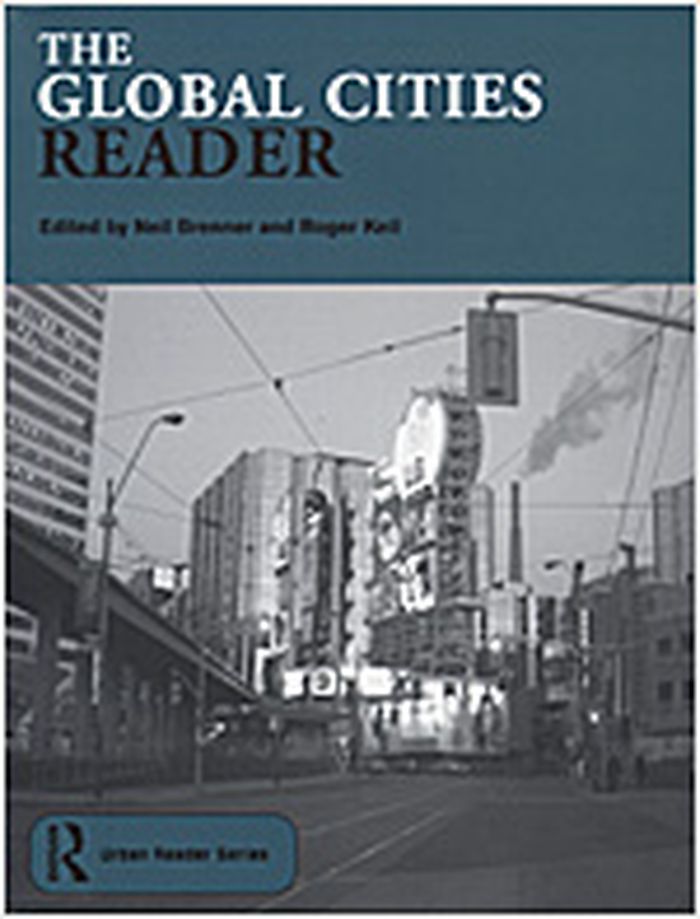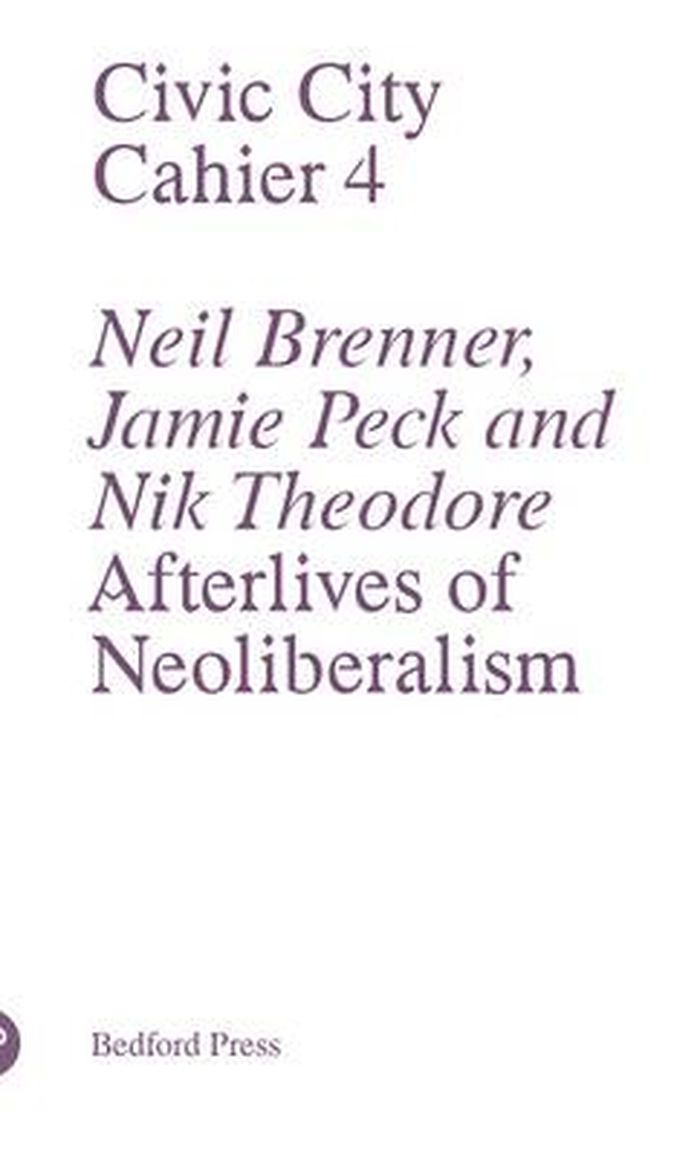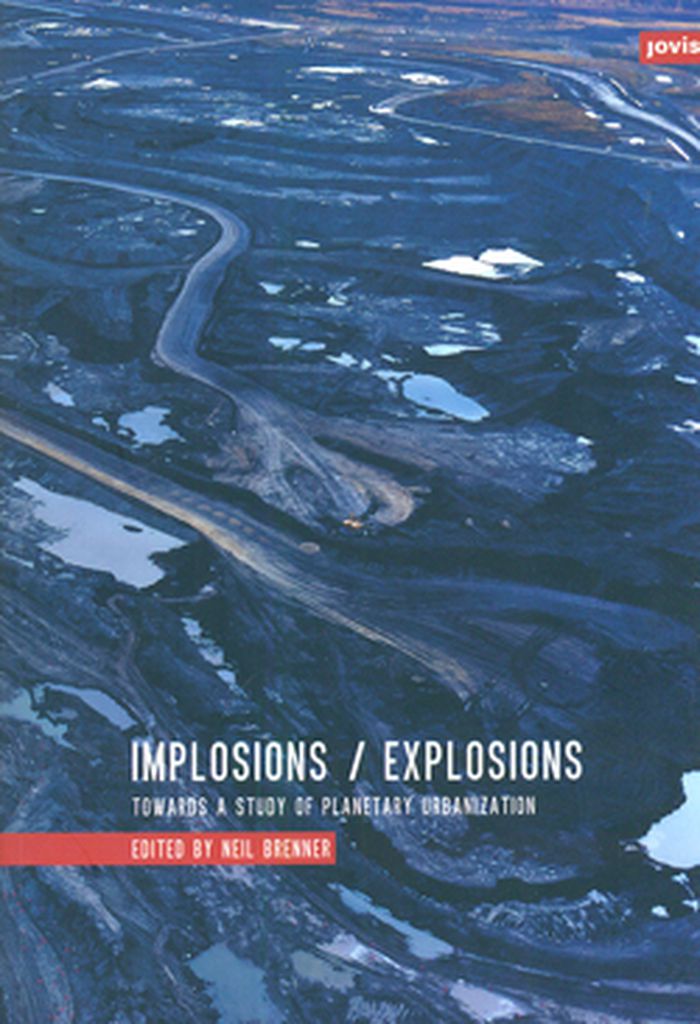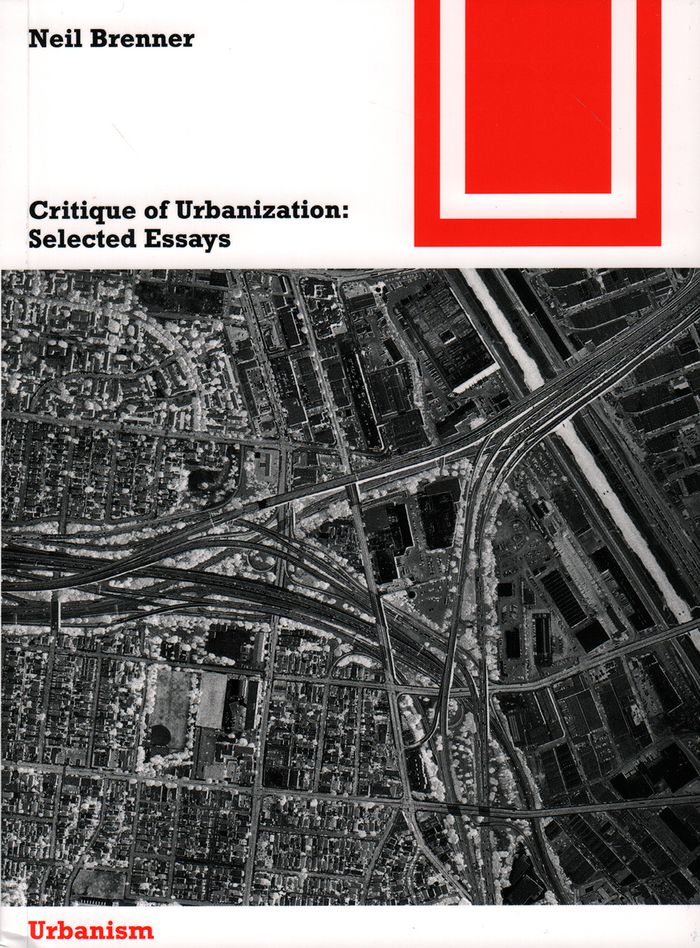The global cities reader
$59.95
(available to order)
Summary:
During the last decade, research on global cities has exploded throughout the social sciences. It has now become one of the most exciting, if controversial approaches to the study of urban life today. Fifty generous selections, including contributions from John Friedmann, Michael Peter Smith, Saskia Sassen, Peter Taylor, Manuel Castells, and Anthony King, explore the(...)
The global cities reader
Actions:
Price:
$59.95
(available to order)
Summary:
During the last decade, research on global cities has exploded throughout the social sciences. It has now become one of the most exciting, if controversial approaches to the study of urban life today. Fifty generous selections, including contributions from John Friedmann, Michael Peter Smith, Saskia Sassen, Peter Taylor, Manuel Castells, and Anthony King, explore the interrelationships between cities and globalization. The seven sections with accompanying editorial introductions guide the student through the key theoretical, methodological, and empirical debates. "The global cities reader" explores the major foundations and intellectual influences of research on globalized urbanization. Classic and contemporary case studies of globalizing cities from Europe, North America and East Asia as well as from emerging world city regions of the global South are presented. The political and cultural dimensions of global city formation are examined in separate sections. The reader concludes by examining the refinement and critique of global cities research in the last fifteen years.
Urban Theory
$19.95
(available in store)
Summary:
In this text, Brenner, Peck and Theodore question the claim that neoliberalism has ended in the wake of the global economic crisis that began in September of 2008. The authors argue that this assumption rests upon an inadequate understanding of the reach and tenacity of the crisis-induced, market-disciplinary forms of regulatory restructuring that have accompanied the(...)
July 2011
Civic city cahier 4 : Afterlives of neoliberalism
Actions:
Price:
$19.95
(available in store)
Summary:
In this text, Brenner, Peck and Theodore question the claim that neoliberalism has ended in the wake of the global economic crisis that began in September of 2008. The authors argue that this assumption rests upon an inadequate understanding of the reach and tenacity of the crisis-induced, market-disciplinary forms of regulatory restructuring that have accompanied the neoliberalisation of cities, regions and states across the world. In contrast with the over-simplified, monolithic conceptualisations of the global economy that prevail in many popular and academic accounts, the authors emphasise the constitutively uneven, institutionally hybrid and chronically unstable character of neoliberalism. For urban designers, planners and activists working to promote more socially just and democratic forms of urbanism, Brenner, Peck and Theodore insist on the need to radically restructure the macroinstitutional "rules of the game" that variously encourage and disallow localities, cities and regions to adapt to market-based approaches to (re)investment, collective-goods provisioning, and social reproduction. "Absent this", they argue, "the potential of progressive postneoliberal projects will continue to be frustrated by the dead hand of market rule".
$60.00
(available to order)
Summary:
In 1970, Henri Lefebvre put forward the radical hypothesis of the complete urbanization of society, a circumstance that in his view required a radical shift from the analysis of urban form to the investigation of urbanization processes. Drawing together classic and contemporary texts on the "urbanization question", this book explores various theoretical, epistemological,(...)
Implosions/Explosions: towards a study of planetary urbanization
Actions:
Price:
$60.00
(available to order)
Summary:
In 1970, Henri Lefebvre put forward the radical hypothesis of the complete urbanization of society, a circumstance that in his view required a radical shift from the analysis of urban form to the investigation of urbanization processes. Drawing together classic and contemporary texts on the "urbanization question", this book explores various theoretical, epistemological, methodological and political implications of Lefebvre's hypothesis. It assembles a series of analytical and cartographic interventions that supersede inherited spatial ontologies (urban/rural, town/country, city/non-city, society/nature) in order to investigate the uneven implosions and explosions of capitalist urbanization across places, regions, territories, continents and oceans up to the planetary scale.
Urban Theory
$49.95
(available to order)
Summary:
Urbanization is transforming the planet, within and beyond cities, at all spatial scales. In this book, Neil Brenner mobilizes the tools of critical urban theory to deconstruct some of the dominant urban discourses of our time, which naturalize, and thus depoliticize, the enclosures, exclusions, injustices and irrationalities of neoliberal urbanism. In so doing, Brenner(...)
Critique of urbanization: selected essays
Actions:
Price:
$49.95
(available to order)
Summary:
Urbanization is transforming the planet, within and beyond cities, at all spatial scales. In this book, Neil Brenner mobilizes the tools of critical urban theory to deconstruct some of the dominant urban discourses of our time, which naturalize, and thus depoliticize, the enclosures, exclusions, injustices and irrationalities of neoliberal urbanism. In so doing, Brenner advocates a constant reinvention of the framing categories, methods and assumptions of critical urban theory in relation to the rapidly mutating geographies of capitalist urbanization. Only a theory that is dynamic—which is constantly being transformed in relation to the restlessly evolving social worlds and territorial landscapes it aspires to grasp—can be a genuinely critical theory.
Urban Theory



